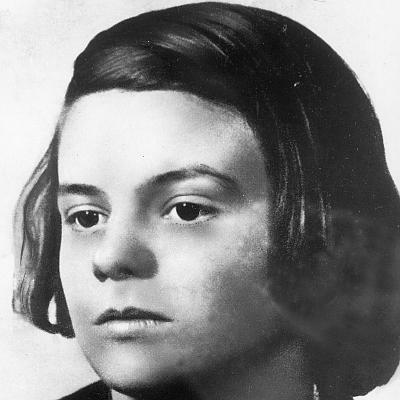becoming a self in history, becoming a self in my street |
||
 Sophie SchollSophie Scholl was a student at the University of Munich during the Second World War. She was part of a small group called The White Rose whose aim it was to resist the Nazi tyranny by passive means. On 22nd February 1943 Sophie, her brother Hans and their friend Christoph Probst were executed by guillotine on charges of high treason. They were respectively 21, 25 and 24 years of age. Their means of resistance had been to write letters and paint the walls with anti Nazi slogans in the hope that people reading them would find the courage to resist the Nazis through even the smallest acts. The night before she died Sophie told her cellmate a dream she had had. The cellmate, Else Gebel, wrote it down to give to Sophie’s family. This is what she wrote.
Sophie had been very influenced by her brother Hans who was a medical student. They were inspired by Christianity and by their conviction that intellectuals have a responsibility to speak the truth regarding the state of the world. While serving on the Russian front in the autumn of 1942 Hans wrote the following words in his diary, addressing the failure of German intellectuals:
Before their execution Sophie and Hans were allowed to see their parents. Christoph was not allowed to see his wife and three children, the youngest of whom had just been born. The guards of the prison were so impressed by their calm self assurance that they allowed the three to be together for a brief moment just before their execution. Before he died Christoph Probst said, ‘I didn’t know dying could be so easy!’ He added: ‘in a few minutes we shall meet in eternity.’
The White Rose: Munich, 1942-1943 (Paperback) by Inge Scholl (Author), Dorothee Solle (Introduction), Arthur R. Schultz (Translator), Wesleyan University Press; Revised edition (1983) Image © TopFoto / Ullstein
| ||
prev |
home • the stories • comment • events • contact | next |